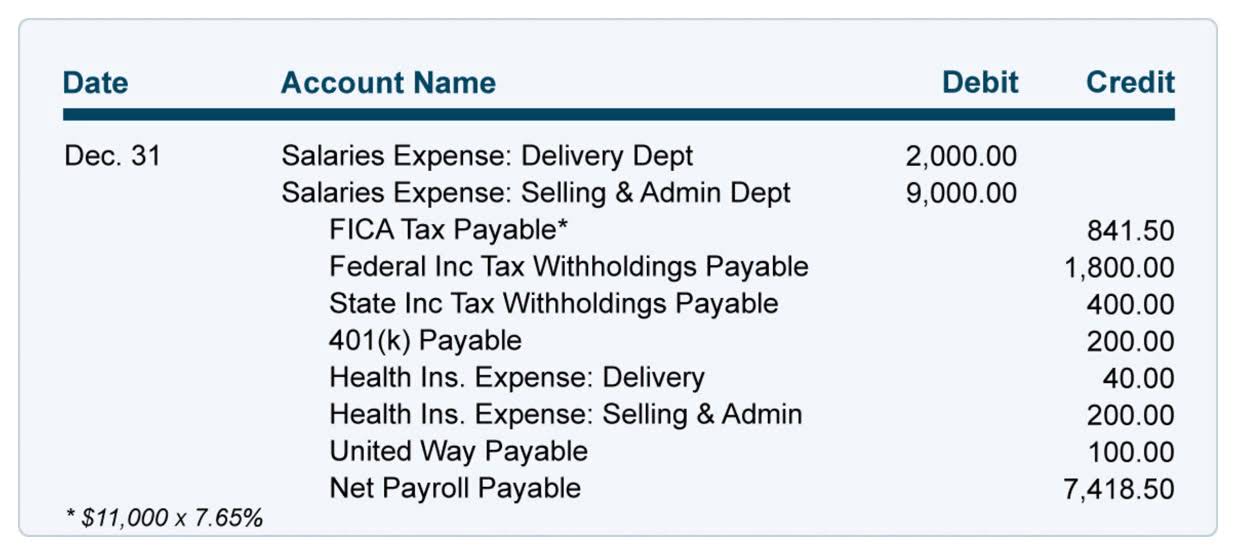
The integration of payroll processes between HR and accounting is not just a theoretical best practice. Here’s a quick summary of notable differences (and a few similarities) between bookkeeping and accounting. Just like bookkeeping the tasks of payroll can be performed manually but unlike bookkeeping, it is more difficult to perform manual payroll. Moreover, manually operating payrolls increase the risk of calculation errors that ultimately disturb the accounting audits at the end of the year. Both bookkeepers and accountants may charge a flat rate or, more commonly, by the hour.

The Differences Between Accounting, Payroll, and Bookkeeping
Accountants help with budgeting and financial forecasting, providing insights into your business’s future performance bookkeeping and payroll services and helping you make informed financial decisions. A bookkeeper will complete these steps and use the chart of accounts to post every journal entry and financial transaction within the general ledger. Accounting or accountancy is the measurement of, the processing of, and the communication of both financial and non-financial information.

Advances in technology influencing small business
For example, not following payroll tax laws could lead to audits or fines for the business. Bookkeeping follows general accounting principles, and while it’s essential to stay compliant, Bakery Accounting the rules are not as strict as payroll. For example, if expenses are miscategorized, it might cause financial confusion, but it usually won’t lead to legal issues. Bookkeeping refers to systematically gathering and organizing all documentation tied to the financial transactions of a business on an ongoing basis.
- Outsource payroll for small businesses as it can provide cost savings and allow greater flexibility in staffing.
- However, the conventional function of a bookkeeper is to record daily transactions and keep your books organized.
- The accounting department is traditionally seen as the department responsible for managing the company’s finances.
- They perform consistent, routine calculations, often using preaccounting software, to ensure transaction histories are accurate and ready for analysis, but they don’t do the analyzing themselves.
- You may also even be able to tag payments and categorize them based on expense type.
Can a bookkeeper prepare financial statements?
- Still stumped on how to handle bookkeeping vs. accounting tasks for your small business?
- When it comes to choosing the right financial management approach, one crucial factor to consider is the size and complexity of your business operations.
- Accountants might take this a step further by registering as a CPA, or Certified Public Accountant.
- They can also do this by fostering collaboration between HR and accounting.
- Payroll accounting refers to an organization’s record of an employee’s compensation, including benefits, payroll taxes and money deducted from wages.
Whether managing your day-to-day bookkeeping tasks or ensuring seamless payroll operations, our services are designed to help you focus on what matters most—growing your business. Let’s jump back to that moment of bliss when the pieces started to come together. ✨Accounting tracks, interprets, and analyzes financial data to provide insights on the financial health of your business. This includes analyzing documents like financial statements, budgets, tax returns, and more. It gives you a better overview of how your business is doing, where it needs support, and where it can grow.

Financial Sector Trends: What the 2025-26 Budget Reveals
- On January 17, once employee wages are fully paid, those liabilities become expenses.
- Accountants work with more comprehensive financial documents derived from the data bookkeepers provide.
- Their primary job is to organize and maintain financial records, ensuring that the data is complete and up-to-date.
- It’s the ongoing process of recording, organising, and summarising every financial transaction.
- The bookkeeper records the day-to-day financial transactions of a business and summarises them, bringing them to what is known as the ‘trial balance’.
- This is crucial for generating reports, filing taxes, and analyzing financial health.
Accounting is the What is bookkeeping action or process of keeping financial records, and then analyzing, verifying, and reporting the results. Bookkeeping is the recording, storing, and retrieving of financial transactions for an individual, company, or nonprofit organization. Payroll, however, has to follow strict rules related to employment laws, taxes, and benefits. Mistakes in payroll, like wrong tax deductions, can cause serious legal problems.
